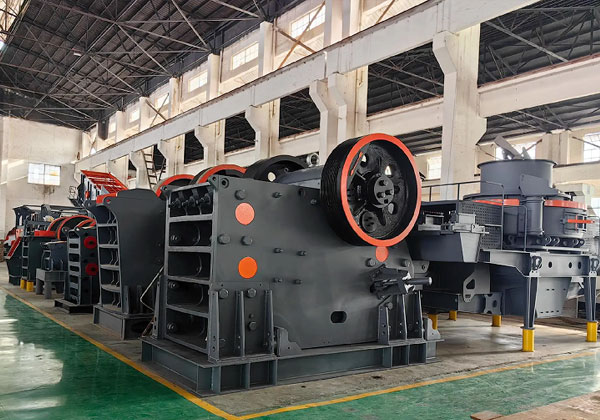Stone Crusher Product Information
Stone crusher is a powerful and versatile machine used in the mining, construction, and quarrying industries to break down large rocks into smaller, more manageable pieces. These machines come in various forms, such as jaw crushers, impact crushers, cone crushers, and vertical shaft impact (VSI) crushers, each serving different functions depending on the type of stone and desired output. A stone crusher is not only designed to break down larger rocks but also to ensure they are finely ground to meet specific size requirements, which are essential for producing high-quality aggregates used in road construction, concrete production, and other industrial applications.
Types of Stone Crushers
There are several types of stone crushers available on the market, each designed for specific tasks and materials. Jaw crushers are the most commonly used machines for primary crushing due to their simple design and ability to handle hard materials. These machines use compressive force to break large rocks into smaller, manageable pieces. On the other hand, cone crushers are used for secondary or tertiary crushing, offering a higher degree of crushing efficiency and producing finer products. Impact crushers, which utilize high-speed impact forces to crush stones, are popular for applications requiring sharp-edged aggregates or fines. Lastly, VSI crushers are used for shaping materials and producing manufactured sand.

Features and Benefits of Stone Crushers
Stone crushers are designed with various features that make them efficient and reliable. Many modern machines come with automated controls, making them easier to operate and maintain. These crushers often have adjustable settings for controlling the size of the output material, which allows for flexibility in meeting the specific needs of a project. High crushing capacity and low energy consumption are other key features that make stone crushers an economically viable option for large-scale operations. Additionally, many crushers are equipped with dust suppression systems to minimize the environmental impact during operation, making them a more eco-friendly choice.
Applications of Stone Crushers
Stone crushers are used in a variety of industries, each with specific needs. In the construction industry, they are used for producing aggregates for road construction, building foundations, and concrete production. In the mining industry, crushers are used to process raw materials like iron ore, copper ore, and gold ore. Stone crushers also play a significant role in the recycling of construction and demolition debris, where they are used to break down large concrete and asphalt pieces for reuse in new construction projects. With the growth of infrastructure development, demand for stone crushers has steadily increased in both developing and developed nations.
Maintenance and Durability
Maintaining a stone crusher is critical for ensuring its longevity and efficient operation. Regular maintenance tasks include lubrication of moving parts, monitoring wear and tear of critical components, and replacing worn-out parts such as liners, jaws, and cones. Some modern crushers are designed with easier access for maintenance, reducing downtime and improving productivity. The durability of a stone crusher depends on the quality of the materials used in its construction and the working conditions under which it operates. High-quality crushers are built to withstand the harsh environments found in mining and construction sites, ensuring that they can handle continuous, heavy-duty operations for extended periods.
In conclusion, stone crushers are vital equipment in the mining, construction, and aggregate industries, offering a range of benefits such as high crushing efficiency, flexibility in output sizes, and the ability to handle diverse materials. With various types available, including jaw, cone, impact, and VSI crushers, these machines cater to a wide array of applications, from primary crushing to fine material production. Proper maintenance ensures that these machines remain durable and efficient, contributing to the overall success of any project they are used in.
